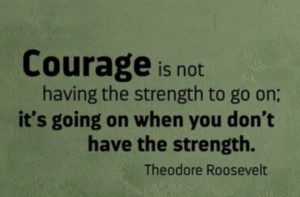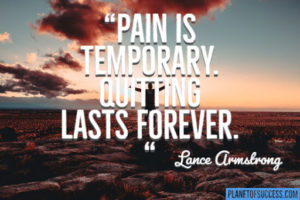
There are two levels on which I want to address this preposterous quote.
(1) I dislike, in general, inaccurate measurements. Specifically, in therapy, I dislike the idea that our own limits are not knowable. I believe that’s part of what is fundamentally useful about therapy – building accurate self knowledge and self awareness!
Look, I don’t want clients to live in a constant state of not-fulfilling-their-potential because they underestimate themselves. I don’t want them to reduce themselves to chronic-victimhood because they aren’t encouraged. I don’t want them to choose avoidance as a proxy for safety, when they could choose skills and strength instead. I don’t want them to suffer from the “untimely deadness of a too narrow existence” (Gendlin, 1973).
I also don’t want clients to be shamed or feel shame because they actually do have limits. I want us all to know and honor the limits of our bodies, our strength, our coping. That’s when we know to access additional resources! That’s how we keep ourselves functioning for tomorrow’s challenges!
When you’re drowning, yes…. you do usually have more oxygen available than you’re afraid you have. And use it all, please! You do usually have another half hour in you to work on that project that’s due, even though you’re really tired. You probably do have a little more self control left over to speak kindly to your partner even though you’re stressed out from your work day. You probably do have more strength than you are afraid you have, more than you initially believe you’re capable of.
Let’s learn our REAL limits, so we can grow at our true edges.
(2) I don’t mind the definitions of courage than rely on fear (“It’s not brave if you’re not scared”), but I really prefer the deeply existential understanding of courage – that you willingly act without knowing the outcome. And we never really know the outcome! We pretend we know the outcome, we relax into that lie sometimes, but we don’t ever really know how anything is going to turn out – our action or our inaction. That makes pretty much everything you do “courageous,” if you’re doing it willingly and acting in “good faith” (i.e., with knowledge of your own personal responsibility in living).

